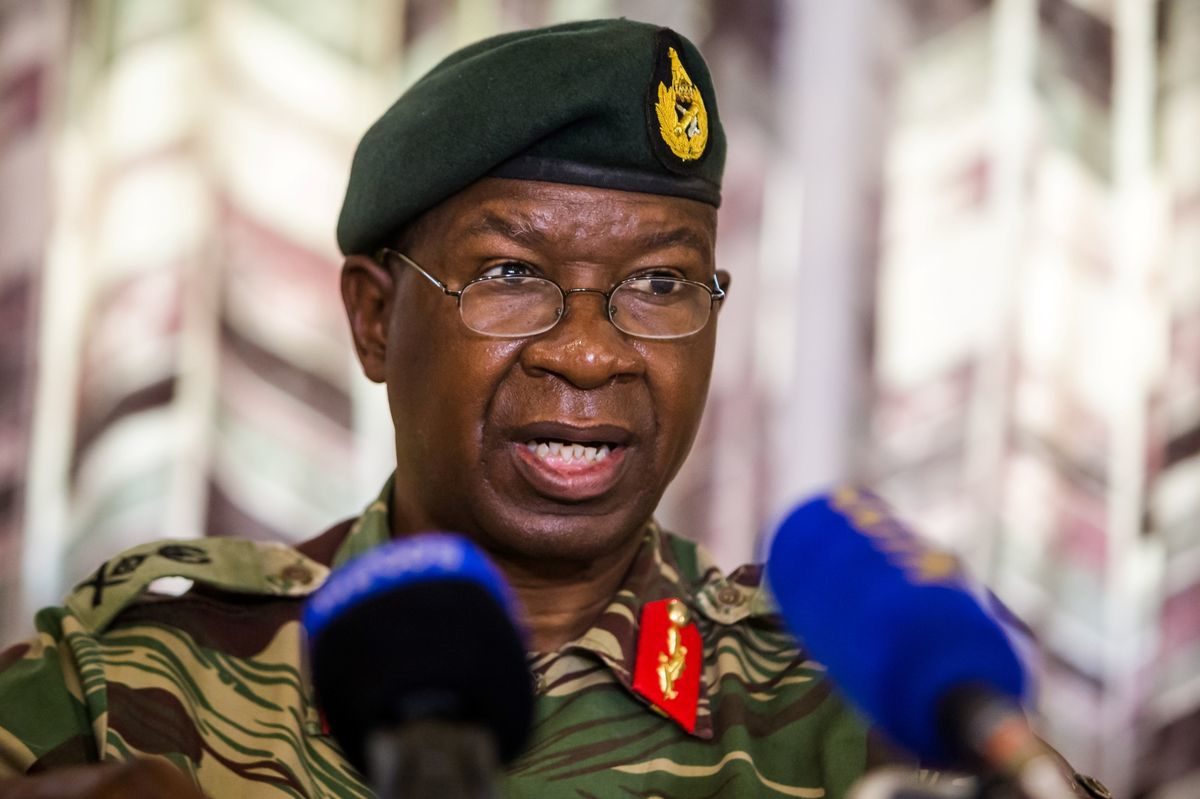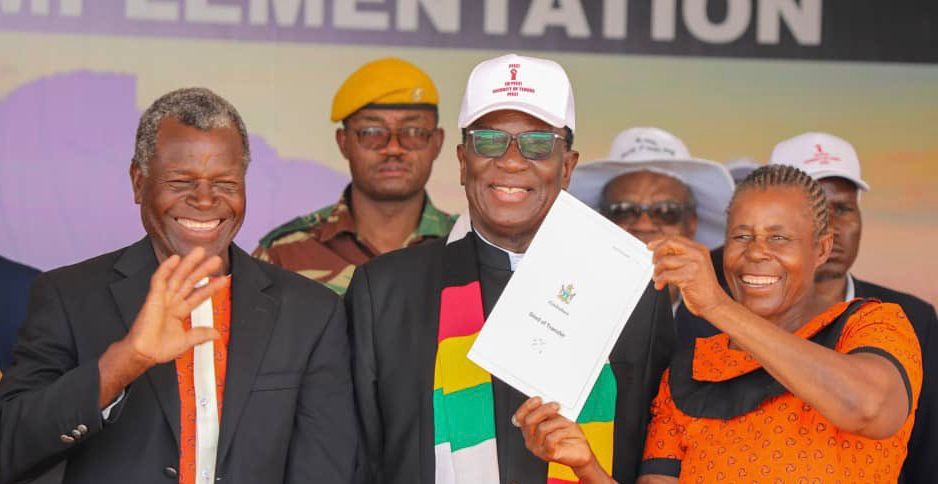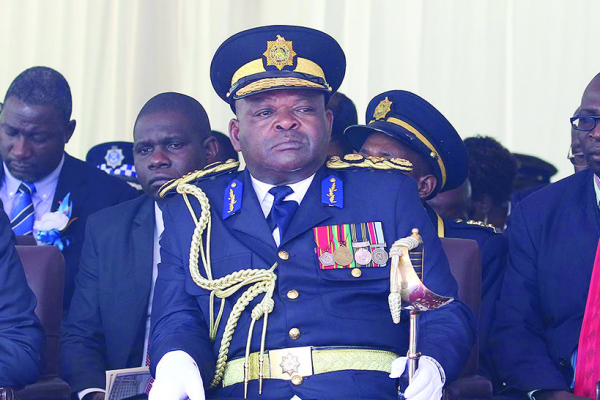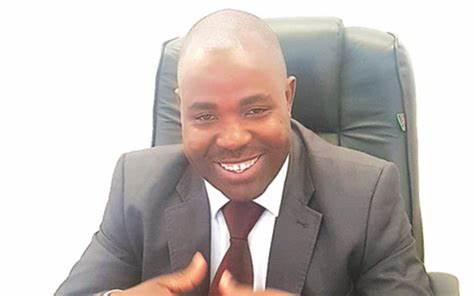JOHANNESBURG, South Africa – Zimbabwe’s military commanders have told President Emmerson Mnangagwa to step down or risk another coup which is simmering within the army’s middle ranks, former Cabinet minister Jonathan Moyo claims in a new interview.
Vice President Constantino Chiwenga had been sent by army chiefs to convey the message to a vacationing Mnangagwa last month, and the 77-year-old is “warm” to a deal that secures protection for him and his family, Moyo added.
Moyo told news website, Spotlight Zimbabwe, in an interview published Wednesday that Mnangagwa’s two-year rule “has been particularly shaky since November 2019” when he claims the Zanu PF leader “foiled an insurgency by army elements against his embattled administration.”
So concerned were military chiefs about a potential violent ouster for Mnangagwa that he claims they sent Chiwenga to the president’s farm during his annual leave last month to ask him to step down.
Moyo claims Mnangagwa’s exit under the deal offered by military chiefs, which he described as a “palace coup”, would have “a semblance of a State House resignation”.
Moyo claims Mnangagwa wants at least US$10 million, immunity from prosecution and a “presidential status that includes a modest motorcade.”
“Mnangagwa has been warm to such a deal, since his Kwekwe chat with Chiwenga but his cronies and cartelists (sic) are not happy with it. Already, the likes of Kuda Tagwirei have become regular if not daily visitors at State House with whispers that they are assessing possible arrangements and budgets for Glens and Biddulphs removal options, should an emergency arise for Mnangagwa and family to quickly exit State House in a negotiated departure,” Moyo claimed in the interview.
Mnangagwa came to power after Chiwenga, then the Zimbabwe Defence Forces commander, led a military coup that ousted longtime leader Robert Mugabe, who died on September 5 last year.
Zimbabwe is struggling through its worst economic crisis in a decade, with prices of basic goods soaring and shortages of medicine, fuel and electricity worsening. Hopes of a quick recovery under Mnangagwa are fading, with his government now facing by multiple threats including a popular uprising.
The worsening poverty is upsetting the fragile calm that has prevailed since the November 2017 coup.
Moyo, now living in exile in Kenya, said Chiwenga missed a “historic calling” when he brought in Mnangagwa to lead the post-coup regime instead of establishing what he called a “generational transition.”
A longtime information tsar for Mugabe, Moyo says a military coup like the one Chiwenga executed “remains possible especially one from the lower and middle ranks of the military who are experiencing the same hardships that are destroying the livelihoods of ordinary people.”
“But such a coup, although quite possible, is unlikely because the generals are aware of its possibility and have been working very hard to suppress it by all sorts of means, including running ahead of it by piling pressure on Mnangagwa to persuade him to go peacefully or risk being removed violently,” he said.
Moyo predicted that the African Union and SADC would not do anything to stop such a coup from happening but would simply suspend Zimbabwe and give the coup leaders a deadline to return civilian authority.
“In 2019, the African Union gave the Sudanese military three different deadlines to hand over power to a civilian led transitional authority to no avail until the army and civilian representatives agreed on a joint transitional team,” Moyo said.
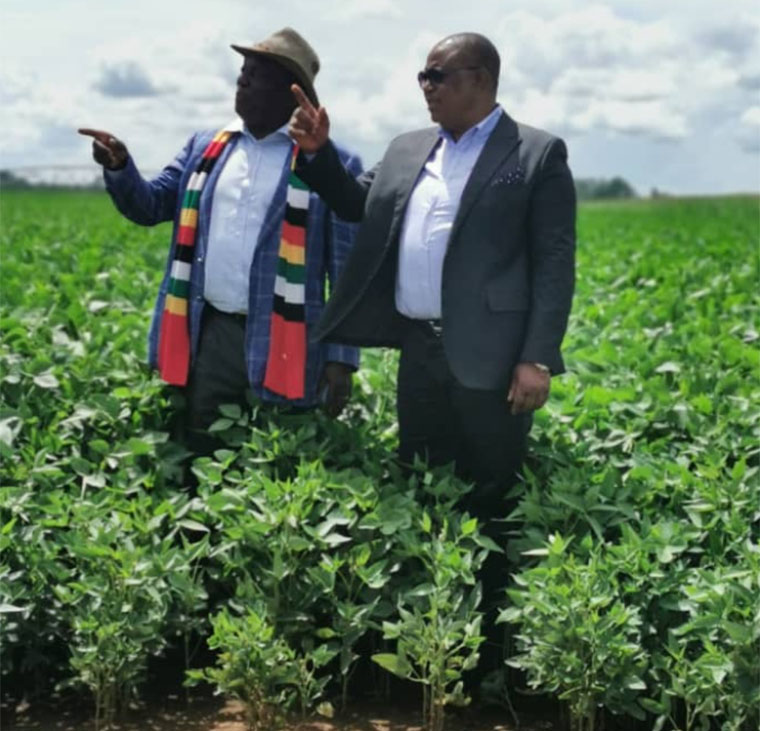
Chiwenga, with whom he enjoyed a personal friendship while living next door to each other in the plush Borrowdale suburb in Harare, could become the kingmaker in the event of Mnangagwa’s exit, Moyo said. But he warned the former army general from seeking the presidency, saying “while he has a hands-on, pragmatic and decisive approach to decision-making that has endeared him to public servants”, Chiwenga “has a terrible temperament that is unsuitable for managing public affairs in a civilian, democratic and constitutional context.”
He went on: “The only way Chiwenga and other generals who are now dabbling in politics can be influential with the possibility of making a positive difference is if they take from the barracks, not their guns, but the discipline and strategic thinking and innovation that is found in modern and professional armies. Things like the internet and mobile phones that civilians around the world now enjoy came from the American military.
“If truth be told like it is, the army in Zimbabwe today is in deep trouble and it needs to have something positive to show for its existence as a matter of urgency or else it is doomed. So far, the military’s dalliance with Zanu PF has not brought new ways of doing politics that are worth of support or emulation. If anything, there’s blood on the floor because of the Army’s entrance into politics in ways that had not been seen before November 2017.
“While Mnangagwa and General (Phillip Valerio) Sibanda are directly accountable for the atrocities committed by the army on August 1, 2018, and 14 to 28 January 2019, Chiwenga has collateral association with those atrocities, which he has never condemned or distanced himself from.
“In this connection, Chiwenga could play a historic role as a kingmaker for the transition. He’s well-paced to do that, and history would reward and honour him handsomely and permanently, if he did that.
“Should the people take to the streets to demand the change that they have been denied for much too long, Chiwenga should embrace them as an act of statesmanship that he’s capable of and is expected to discharge in response to a historic calling which he missed in 2017 and cannot afford to miss, yet again.”
George Charamba, the spokesman for the presidency, was not answering his mobile phone and messages left for him had not been returned.

